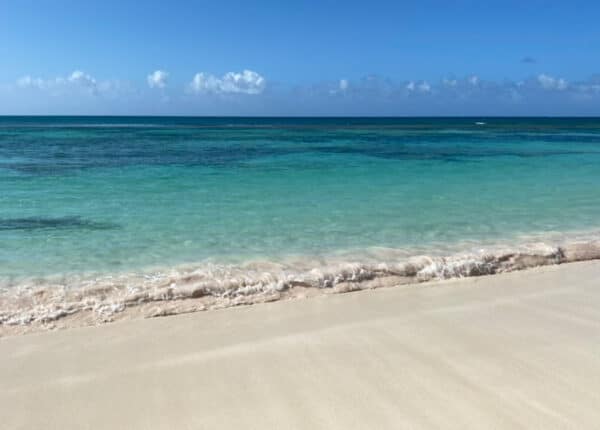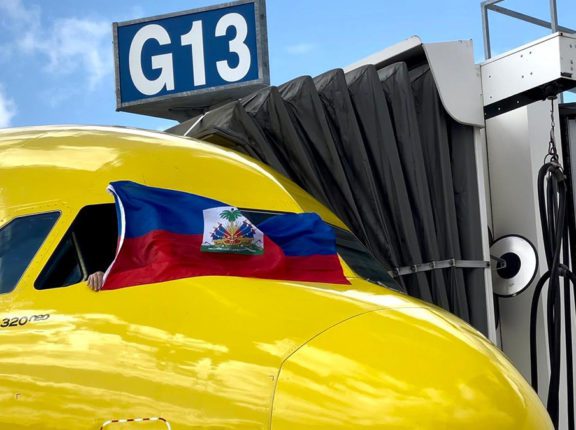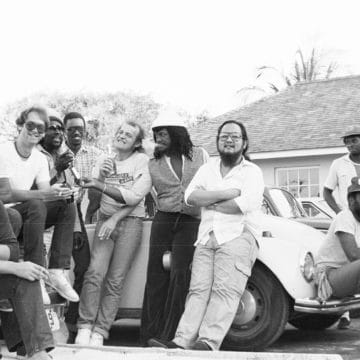By Ilio Durandis
CJ Contributor
SOMETIME IN THE 19TH CENTURY, in 1849 to be precise, long after Haiti’s independence from imperial France; there was an American slave, Henry “Box” Brown, who had himself mailed in a box to freedom.
Henry Brown did not become a free man all by himself. He had the support of some sympathizers, who helped him escaped slavery to become a free black man. During Henry’s trip from Virginia to Philadelphia, the content of the closed wooden box was only known to a few and remained a mystery to many.
The fight for freedom is never easy, and sometimes it takes illegal means to effect a just end.
Just like Brown, Haiti finds itself in a battle to make democracy work and reveal the content of its closed box.
There are still too many unresolved issues for a democratic state to flourish in Haiti. The box seems closed to some and open to others.
It’s possible that Contemporary Haitian leaders from 1957 to the present, have led to an irreversible division of Haiti, both in term of social policy and political ideology, into two strongly destructive camps, dictatorial and absolutist.
From 1957 to 1986, one family ruled Haiti with an iron fist, and made the state coffers their personal bank account. Oppression of the masses, obedience to rulers, and a laissez-faire mantra for the wealthy has given us a Haiti that is psychologically unequipped to critically rationalize, discuss and plan its own destiny.
The immediate period after 1986 saw Haiti returned to military rule, which, instead of security and stability, created more corruption, instability and the phenomenon of “Zenglendo” night scavengers that terrorized the average family.
After two failed attempts to establish order and the rule of laws at the ballot box, in 1991, the Lavalas movement stormed into power with its then-charismatic leader, Jean Bertrand Aristide, with a message that resonated with the majority poor.
The response to the malfeasance of the dictatorship era was revenge. Instead of a dialogue toward national reconciliation, Haitians became subjected to more division and self-hatred. It did not take long for those who used to hold power to recognize the danger and limitation of the Lavalas movement.
Thus, the destructive forces against democracy were fully set in motion: Lavalas on the left, with its leaders wanting absolute power in the name of the people; and Duvalierism on the right, with a thirst to return to power to control and dictate the people.
In essence, both the Lavalas philosophy and Duvalierism are two sides of the same coin. Their continual survival can only be sustained at the expense of an uninformed and mis-educated population.
On one side, we have those who want to reclaim their throne at any cost, and on the other side we have those who believe they are the rightful leaders of the people.
Duvalierism’s social policies relied heavily on foreign investments, especially low-wage textile jobs, as was the case in the 1980s. These policies centered on opening the Haitian market to foreign goods, and the idea that, eventually, a trickle-down effect would alleviate the economic hardship of the poor. Politically, the idea was to control the opposition, limit freedom of expression, and have a strong enforcing force to maintain power at all costs.
Whereas, the Lavalas movement, on paper, was about social inclusion, fair wages, wealth redistribution, limitation of foreign goods on the local market, but the politics of Lavalas did not differ much from that of Duvalierism. In other words, the Lavalas philosophy was an enantiomer of the very system it wanted to replace. It relied on controlling the opposition, being vehemently vengeful against the remnants of the Duvalier era, silencing strong voices in the free press, and later arming its small corps of enforcers to maintain power at all costs.
It is this parallel between both camps that makes Haiti a failed state, and the folly to continue in that direction can only lead to more failures.
Today, the myth in Haitian society is that one has to either be a Duvalierist or a Lavalas sympathizer. There seems to be no room for any other viewpoint.
The cycle of power between two very destructive ideologies cannot be the only way, and Haitians of all walks of life must be attentive and vigilant about the direction of the country.
It is clear that elections in Haiti are not yet the solution.
Logistically, Haiti has proven time after time its inability to stage fair and democratic elections.
Haitian leaders have time and again demonstrated great disregard to respect the rule of law and hold elections on time as mandated by the constitution. And often, the people do not have adequate information to make such an important decision.
Once in power, the goal of elected officials is to remain in power, and close the box to those not in power.
It is a vicious, destructive and regressive cycle. The country is still being held hostage by ideologies that have been tried and failed in the past, but yet the allure to remain in power beyond the legal timeframe has made them very attractive to Haitian leaders.
Obviously, Haiti can do better, and it should.
All sectors of Haitian society must awaken and try to answer this question: Do we all really want a better Haiti? If the answer is yes, then it could be the beginning of a national consensus to make Haiti prosper beyond its means, flourish as a flower in the spring, and germinate the seeds of freedom all across the land.
This country is too important in the narration of humanity, for us Haitians to be holding on so tightly to divisiveness and destructive ideologies, when the path forward is clear and frictionless, paved with the concrete of fraternity and that leads to a horizon that extends toward unity and self-fulfillment.
The fight for freedom might have started by the likes of Boukman, Toussaint, and Dessalines among others, but it does not have to end with them.
As long as there are Haitians who are oppressed, hungry, uneducated, unemployed, underemployed, uninformed, or left behind, the struggle for freedom cannot and should not end.
The paradox of the box is not simply about individual freedom and personal wealth, but that of the collective.
The Haitian soul must not allow itself to be held captive to regressive ideologies. This is not the time, nor is it the moment to even contemplate or be nostalgic about a past that has caused so much pain for so many.
Haiti needs to move forward, in the spirit of healing and unification, and then set the stage to solve the riddle of the closed box in the name of liberty, equality and fraternity.
Ilio Durandis, a Caribbean Journal contributor, is the founder of Haiti 2015, a social movement for a just and prosperous Haiti. He is also a columnist with The Haitian Times.







